Prof David Palmer Calls for Enhanced Social Risk Management in Belt and Road Projects to Advance Holistic ESG Governance
At the Seventh Plenary Meeting of the Green Investment Principles (GIP) for the Belt and Road held today at The University of Hong Kong (HKU), Professor David A. Palmer, Professor of Sociology at HKU and Director of the Global Society and Sustainability Lab, delivered a keynote speech emphasizing that social risk management is crucial for achieving Environmental, Social, and Governance (ESG) objectives within Belt and Road Initiative (BRI) projects.
10/13/20253 min read
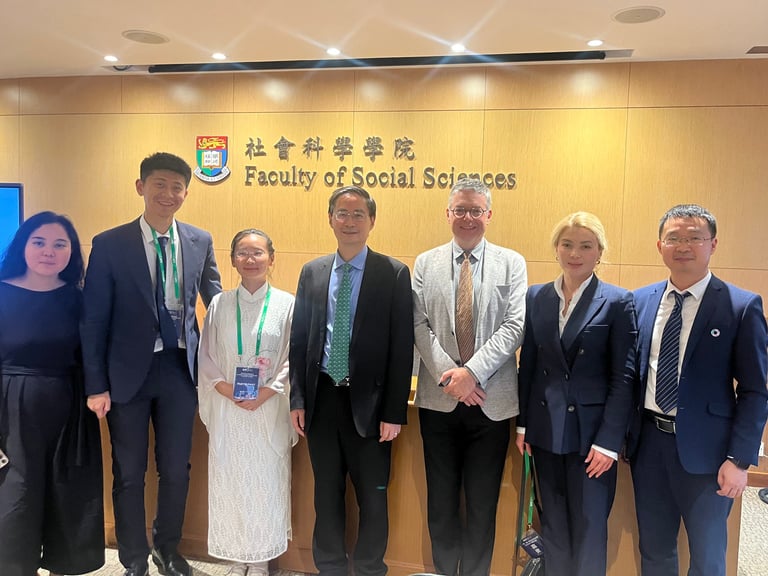

Hong Kong, September 30, 2025 – At the Seventh Plenary Meeting of the Green Investment Principles (GIP) for the Belt and Road held today at The University of Hong Kong (HKU), Professor David A. Palmer, Professor of Sociology at HKU and Director of the Global Society and Sustainability Lab (GSSL), delivered a keynote speech emphasizing that social risk management is crucial for achieving Environmental, Social, and Governance (ESG) objectives within Belt and Road Initiative (BRI) projects.
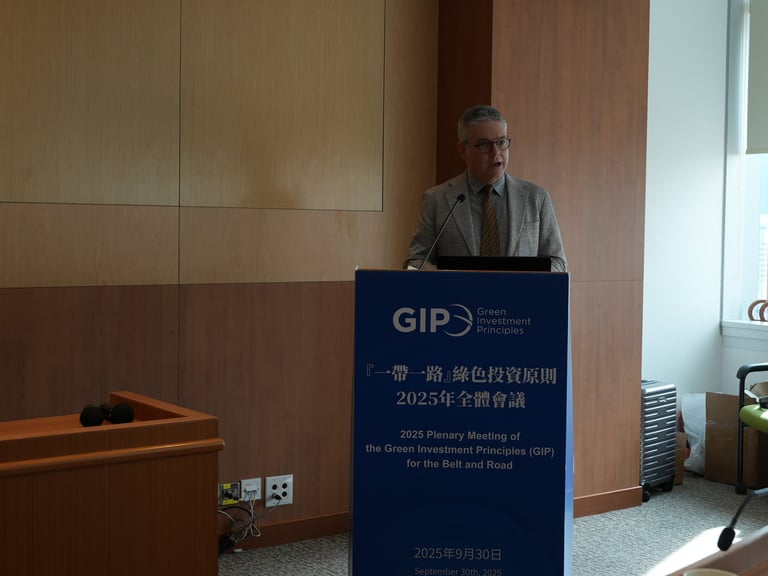

In his speech titled "The Social Dimension of Sustainability: Social Risk Management for ESG on the BRI," Professor Palmer argued that while ecological sustainability presents an existential challenge, understanding "ecology" requires a holistic approach that recognizes the inseparability of the physical environment and social life. He stressed that sustainability depends as much on social values and collective capacity as it does on scientific expertise and technical solutions.
"Humans engage with their surroundings as social beings: they imagine futures, interpret environmental changes, construct knowledge, debate strategies, and implement sustainability measures," stated Professor Palmer. "Therefore, the social dimension is indispensable within the ESG framework."
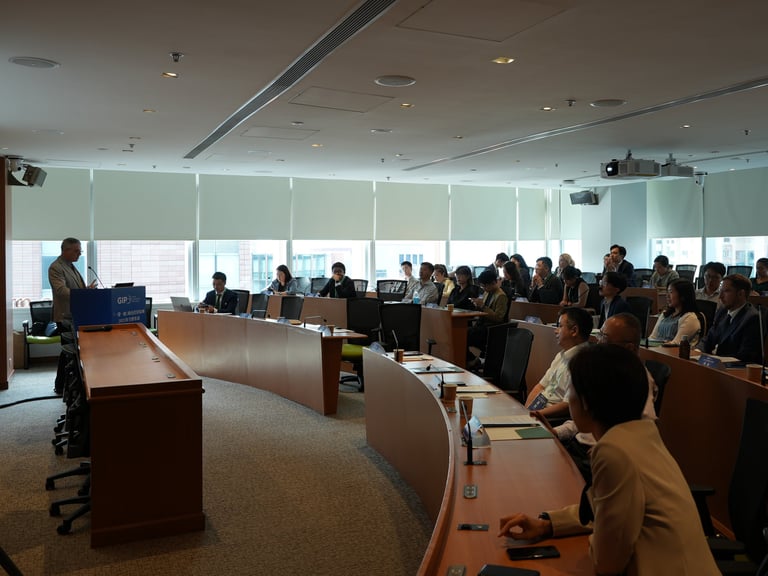

Over the past eight years, Professor Palmer and his team have conducted extensive field research in numerous countries along the Belt and Road. Through site visits, stakeholder interviews, and policy seminars, they have systematically analyzed diverse manifestations of social risk, including community displacement, labour issues, cultural heritage protection, environmental health concerns, and inequitable benefit distribution.
He introduced a fresh perspective termed "social risk negotiation," highlighting that risk is not only an objective reality but also a subjective perception. Communities perceive risks differently, leading to varied responses such as adaptation, opposition, opportunism, or internal division. They might even leverage connections with NGOs or media to escalate a local issue into an international crisis.
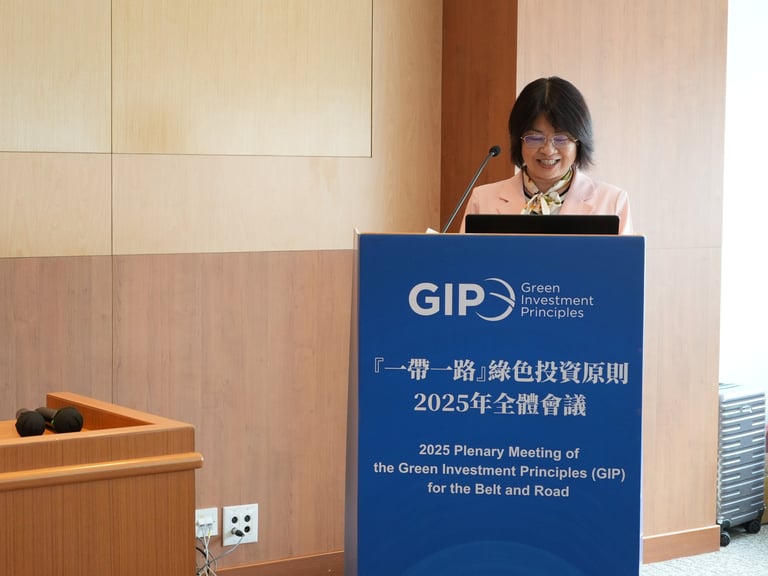

Citing the theory of anthropologist Mary Douglas, Professor Palmer illustrated four typical cultural responses to risk: blaming leaders, blaming outsiders, blaming individuals, or passive fatalism. These responses directly impact project progression and outcomes.
He further noted that many BRI projects have faced delays, cancellations, reputational damage, or legal disputes due to poorly managed social risks. Conversely, projects like the Jakarta-Bandung High-Speed Railway and the Laos-China Railway have succeeded partly through effective social risk management.
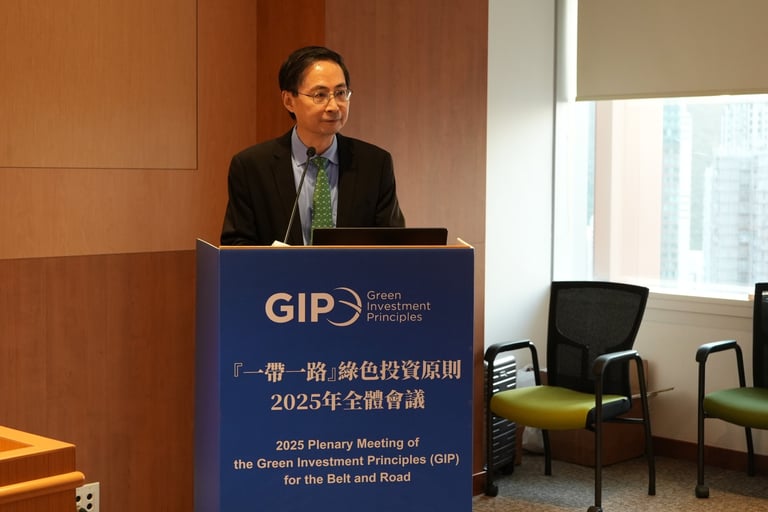

Concluding his speech, Professor Palmer posed a fundamental question: "Whose risk are we managing? Is it for the corporate bottom line, for local communities, or for humanity as a whole?" Using copper and lithium mining projects as examples, he pointed out that initiatives aimed at mitigating global climate risk might simultaneously heighten risks for local communities, emphasizing the critical need to balance these competing risk levels.
Professor Palmer called on all parties to deepen their understanding of local social realities and cultural values, and to foster interdisciplinary, multi-stakeholder dialogue and collaboration to truly achieve sustainable investment and development.
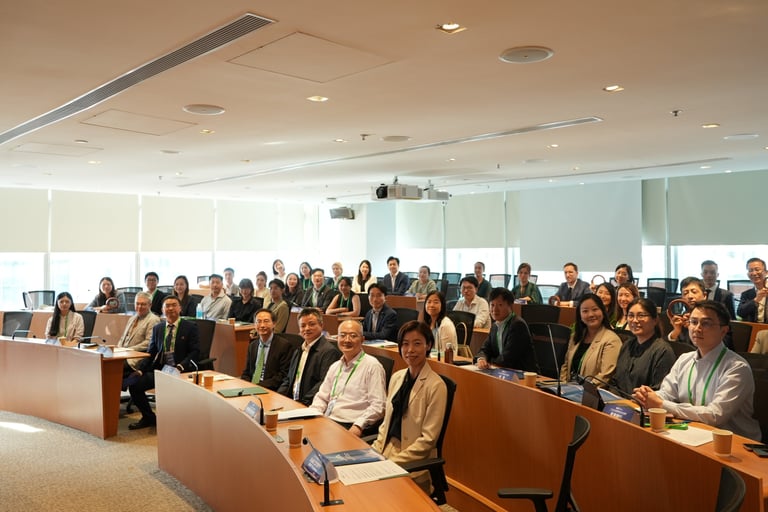

The meeting was co-chaired by Dr. Ma Jun, Co-Chair of the GIP Steering Committee and Chairman of China Green Finance Committee, and Sir Michael Sheren, Senior Fellow of the Cambridge Institute for Sustainability Leadership and Vice-chair of the Banking Environment Initiative. It attracted numerous representatives from government, business, academia, and non-governmental organizations.
The Green Investment Principles (GIP) for the Belt and Road, launched in 2018, is a key framework co-established by the China Green Finance Committee and the City of London Corporation, along with other international partners. As of December 2024, it has attracted 49 signatory institutions from 17 countries, representing $42 trillion in assets. The GIP outlines seven core principles structured around three strategic pillars: corporate governance, operational processes, and financial innovation. These principles guide signatories in integrating sustainability into corporate strategy, improving stakeholder communication, and adopting green financial instruments to support sustainable development across the Belt and Road region.
Media coverage: https://mp.weixin.qq.com/s/PKQoNZTVZsdGcQYDNYGTSg
David A. Palmer
SITE MAP
Bridging research and community through spiritual growth, dialogue, and social engagement.
Home
Copyright © 2025 David A. Palmer. All Rights Reserved.
CONTACT
About
Publications
Resources
Team & Students
